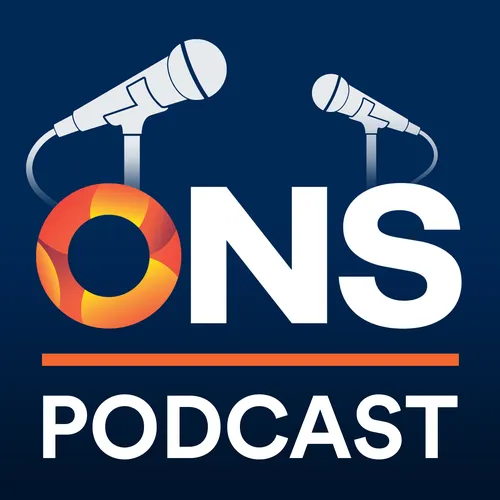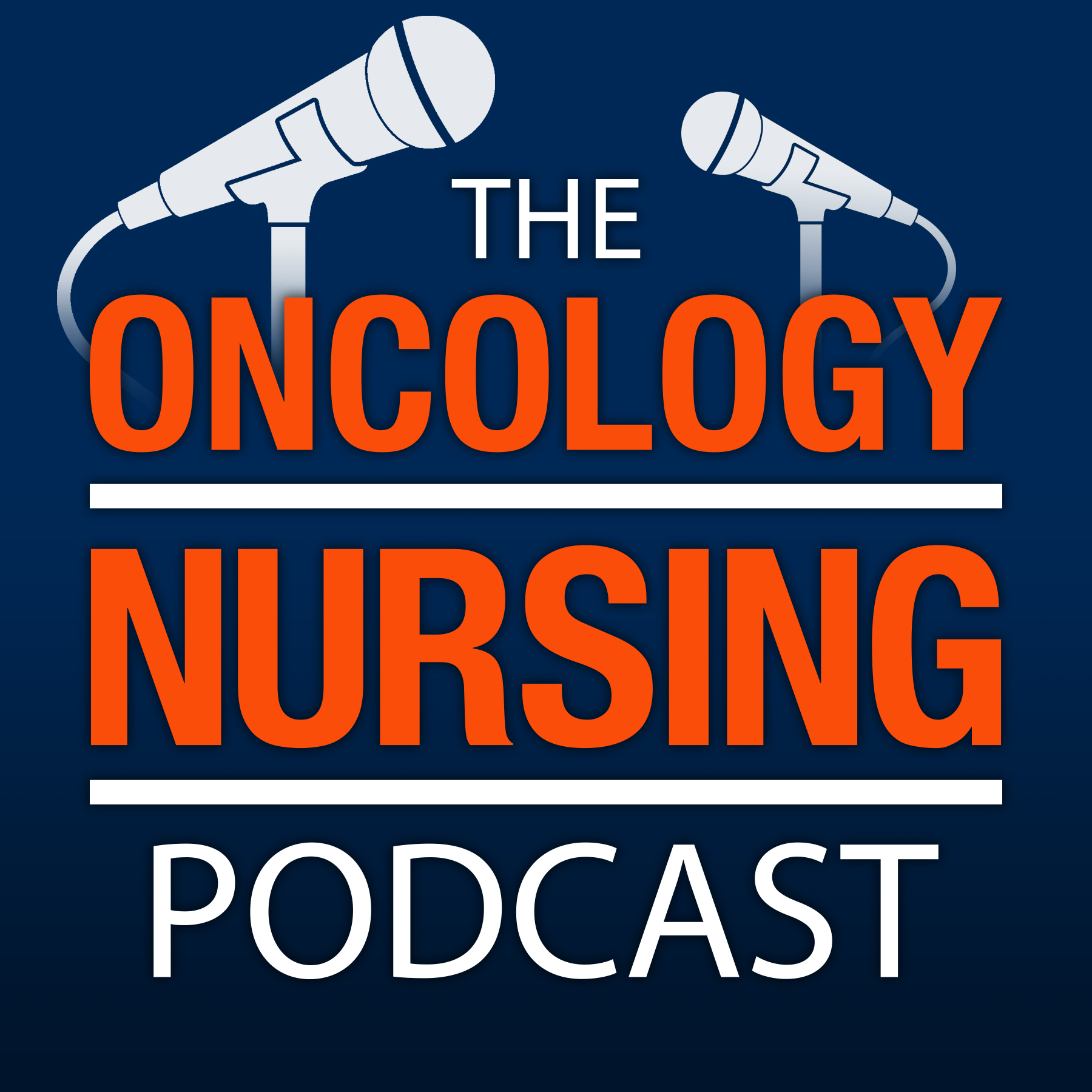
The ONS Podcast
Where ONS Voices Talk Cancer
Join oncology nurses on the Oncology Nursing Society's award-winning podcast as they sit down to discuss the topics important to nursing practice and treating patients with cancer.
ISSN 2998-2308
- Update frequency
- every 7 days
- Average duration
- 34 minutes
- Episodes
- 383
- Years Active
- 2017 - 2025

Episode 320: What It’s Like to Be a Peer Reviewer or Associate Editor for an ONS Journal
“In my role as an associate editor, I truly felt like I was bringing the voices of nurses who were new to oncology or new to writing forward. I was able to provide a venue for those oncology nurses …

Episode 319: Difficult Conversations About Pregnancy Testing in Cancer Care
Episode 319: Difficult Conversations About Pregnancy Testing in Cancer Care
“For people diagnosed with cancer that are of childbearing potential, we have to consider how [pregnancy] testing could i…

Episode 318: Early Mobility for Hospitalized Patients
“We put into effect a program that supports guaranteed mobilization of every patient at least twice a day, which is such a huge change from where we were before, where patients were maybe getting ou…

Episode 317: AYAs With Cancer: A Patient’s Experience
“I was in this really unique space of being 19. So I’m over the 18 cut-off of peds but diagnosed with Ewing sarcoma, but I was an adult. I was able and supposed to be making my own decisions but tre…

Episode 316: Pharmacology 101: Estrogen-Targeting Therapies
“Estrogen plays a key role in promoting the proliferation of normal and breast cancer epithelium. So now we have gone from focusing just on the estrogen to also look at estrogen receptors on breast c…

Episode 315: Processing Grief as an Oncology Nurse
“I think the reality is that we as humans are having a human experience, some of which is incredible and some of which is terrible. And to deny ourselves the opportunity to feel any of those emotion…

Episode 314: Plasma and Cryoprecipitate Administration: The Oncology Nurse’s Role
“Transfusion safety is really a registered nurse activity, and I just continue to reiterate the blessing of nursing assessment, getting those vitals before the transfusion, and then monitoring them …

Episode 313: Cancer Symptom Management Basics: Other Pulmonary Complications
“Of all the eight different pulmonary toxicities you and I have talked about over these two different podcasts, they’re all very different etiologies and treatments. So, we went everywhere from infe…

Episode 312: Virtual Nursing in Health Care
“I think a virtual nurse can have the same sort of presence that a bedside nurse does. I like to think of a virtual nurse as pulling up a virtual chair next to that patient and spending time to ask …

Episode 311: Standardized Pregnancy Testing Processes in Cancer Care
“Chemotherapy exposure during the first trimester is contraindicated and increases the risk of spontaneous abortion, fetal death, and major congenital malformations. Second- and third-trimester expo…

Episode 310: Pharmacology 101: Androgen Receptor Inhibitors and Antiandrogens
Episode 310: Pharmacology 101: Androgen Receptor Inhibitors and Antiandrogens
“The things that I think creep up are things that unfortunately are quite common, and that’s hot flashes. I’ve had pati…

Episode 309: What Brings You to ONS Congress®?
“It was really the ability to be able to connect with many individuals from my profession. Reflecting on what initially drew me to ONS Congress, I can’t help but reminisce about my first time attend…

Episode 308: Hazardous Drugs and Hazardous Waste: Personal, Patient, and Environmental Safety
“One of the things that I know Dr. [Tom] Connor worked on very heavily in his career is the long-term impact on the health of nurses and other exposed healthcare workers. We definitely need more long…

Episode 307: AYAs With Cancer: Financial Toxicity
“When we’re talking about the role of nurses in addressing these challenges, they play a critical role because of when they actually get to see patients. And so, if we can help with early identifica…

Episode 306: Cancer Symptom Management Basics: CNS Toxicities
“At the beginning, like when you first meet someone before they’ve even started anything, kind of get a baseline of ‘What’s your ability to complete your daily activities? How is your coordination? …

Episode 305: Pharmacology 101: Nitrosoureas
“A couple of things I think are really important when you look at this class of drug: It developed by a concerted effort in cancer drug development to look at new agents that would be effective base…

Episode 304: Nursing Roles in FDA: The Drug Labeling and Package Insert Process
“The prescribing information is really a reliable data-driven and comprehensively reviewed tool. That’s not just for healthcare providers when writing a prescription, but also, for example, it is a …

Episode 303: Cancer Symptom Management Basics: Ocular Toxicities
“First, you want to refer patients to an eye care provider prior to initiating therapy, and I think communication at this point is really important. You need to tell the eye care provider why they’r…

Episode 302: Patient Navigation Eliminates Disparities in Cancer Care
“We’ve seen over and over from an access standpoint how that makes a difference, then especially when you’re looking across racial disparities, ethnic disparities, geographic disparities, that havi…

Episode 301: Radiation Oncology: Side Effect and Care Coordination Best Practices
“Social work was involved because we could be radiation gung-ho, ready to go; chemo can be ready, but whoops, this patient doesn’t have a ride. It can be little things like that, you know, where we …